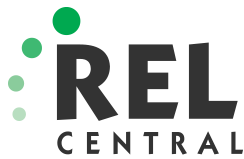Teachers’ performance on certification exams and their years of experience teaching math were most associated with middle school students’ success in Algebra I, according to the new REL Central report Associations Between the Qualifications of Middle School Algebra I Teachers and Student Math Achievement. The report was the result of a partnership between REL Central and Missouri Department of Elementary and Secondary Education (MO DESE) to discover the teacher qualifications most strongly associated with students Algebra I achievement.
Education leaders in Missouri are working to provide access to high-quality Algebra I teachers to middle school students. They are interested in doing so because Algebra I is considered a gateway to more advanced math topics. By teaching Algebra I early in a student’s education, students have a greater opportunity to take higher level math before entering into college. However, one question raised by MO DESE leadership is the importance of teachers’ qualifications on the success of students. For example, one issue raised was whether teachers certified to teach only middle school math could as effectively teach Algebra I as those teachers certified to instruct on high school math. While past studies have reported mixed results in this area of math knowledge, the concern stems from reports stating that “it may be more difficult for teachers certified in middle school math to help students make connections to higher level math and build a foundation for these more-advanced topics” (Stewart, J., Rhoads, C., Serdiouk M., Van Dine, D., Cherasaro, T., & Klute, M. (2019).
To better understand this qualification and others related to a teacher’s knowledge of Algebra I and math, REL Central researchers looked at associations between teachers’ qualifications and the performance of students on their year-end Algebra I exams. The qualifications included certifications to teach math, the number of years teaching math, and their education background.
“While administrators should consider personal disposition and pedagogical skill when hiring teachers, this study confirms the strong link between teacher content knowledge and student success in Algebra I as measured by state assessments. Highlighting the combination of factors that contribute to positive student outcomes serves as a valuable piece of information as schools consider the direction of their in-house professional development efforts,” said Jim Masters, Coordinator of Educator Evaluation and Training for MO DESE and a REL Central Governing Board member.
According to the report, after reviewing the qualifications of middle school teachers and subsequent student scores, researchers found that the amount of time a teacher had taught math and their scores on a certification exam to teach math, such as the Praxis II Middle School Mathematics exam, were associated with student success in Algebra I.
In addition, the report indicated that students’ achievement was not associated with teachers who were certified to teach high school math. Furthermore, the report noted that while years teaching math was associated with higher student success in Algebra I, years teaching did not show a similar association.
In response to the findings, Joshua Stewart, a REL Central senior researcher who led the study, explained that while the report shows only correlational relationships, it can be used by MO DESE staff to determine teacher placement–among strategies to attract qualified Algebra I instructors.
“In addition to the MO DESE team, the findings can be useful to education leaders in other states as they consider which teacher qualifications are important for student achievement in Algebra I,” Stewart said.
Reference:
Stewart, J., Rhoads, C., Serdiouk M., Van Dine, D., Cherasaro, T., & Klute, M. (2019). Associations between the qualifications of middle school Algebra I teachers and student math achievement (REL 2019–005). Washington, DC: U.S. Department of Education, Institute of Education Sciences, National Center for Education Evaluation and Regional Assistance, Regional Educational Laboratory Central. Retrieved from http://ies.ed.gov/ncee/edlabs.





